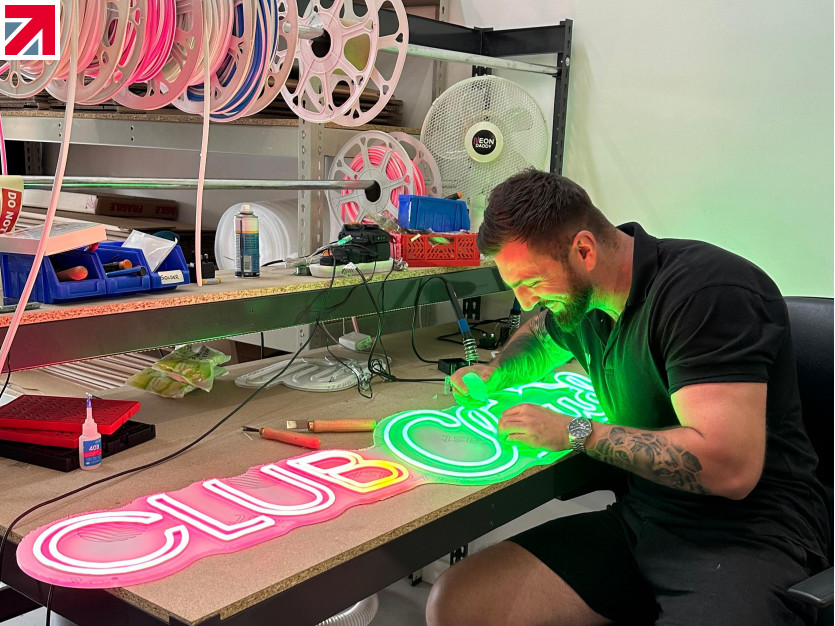The phrase Made in Britain is more than just a label. It represents jobs, skills, and industries that could disappear if we rely too heavily on imports. For businesses like Neon Daddy Limited in Wokingham, keeping production local isn’t just about pride, it’s about long-term resilience for both makers and customers.
Value the skills that keep us making things
When production is outsourced overseas, skills vanish here at home. In our workshop, every neon sign involves graphic design, CNC machining, soldering, wiring, and testing. These are skills you don’t learn in a lecture hall, they come from hands-on practice, solving real problems in real time.
If fewer products are made here, the next generation doesn’t get the chance to learn those skills. Once they’re gone they are incredibly difficult to rebuild. By choosing to buy British, customers are directly funding the transfer of knowledge from one maker to the next.
Strengthen local supply chains instead of weakening them
Imports might appear cheaper, but they often hide fragility. Recent years have shown how easily global shipping can be disrupted, driving up costs and stretching lead times.
When businesses buy British, the opposite happens: money flows into local suppliers who in turn support others in the chain. At Neon Daddy, we use British-sourced materials wherever possible because we know every order helps keep the network stronger. Although this isn't always possible as many components/materials just aren't made in the UK anymore, it highlights the importance of buying British, to help maintain what we do make. Hopefully in the long run, bring back some of our industrial manufacturing to a scale that it makes is cheaper to produce items here, rather than importing them. It’s a small decision at the point of purchase, but it adds up to national resilience.
Work directly with the makers
One of the overlooked benefits of keeping production local is the connection between maker and customer. Buying British often means you’re closer to the workshop, closer to the people making your product, and you can collaborate directly.
For example, at Neon Daddy we give customers the chance to upload their own logos or designs straight onto our website. Instead of sending a file into the unknown, they know it’s going to a British team who will design, machine, wire and finish the sign themselves. This supports all kinds of trades such as graphic designers as well as skilled hands on workers. That kind of link is rare when products are mass-produced overseas, or when you’re only dealing with an importer.
Make sure “Made in Britain” really means what it says
Not every UK-based company manufactures here. Some act as middle-men, importing products and presenting them as if they were home-grown. It can be difficult for buyers to tell the difference, which is why asking the right questions matters.
Is the product actually made in the UK? Who machines it, who assembles it, who tests it? Supporting true British manufacturing means looking beyond the front of the website and understanding where the work is really done. Certifications such as the Made in Britain mark help to give that clarity.
Supporting UK manufacturing isn’t just about keeping workshops like ours busy. It’s about protecting the country’s ability to design, make and innovate for the future. If customers continue to choose British-made products, we’ll keep the skills alive, strengthen supply chains, and make sure that Made in Britain is more than just a label, it’s a guarantee.
👉 View Neon Daddy’s Made in Britain directory profile here
neondaddy.co.uk
Find out more about Neon Daddy on their member profile page here
Member-created content 1 month ago | From members
